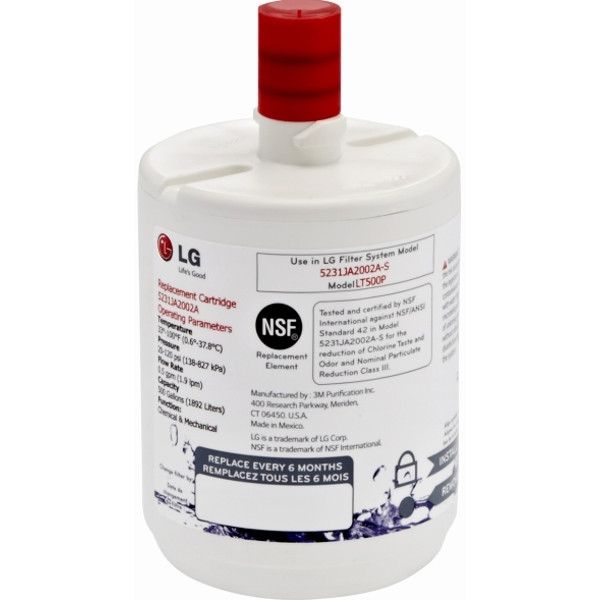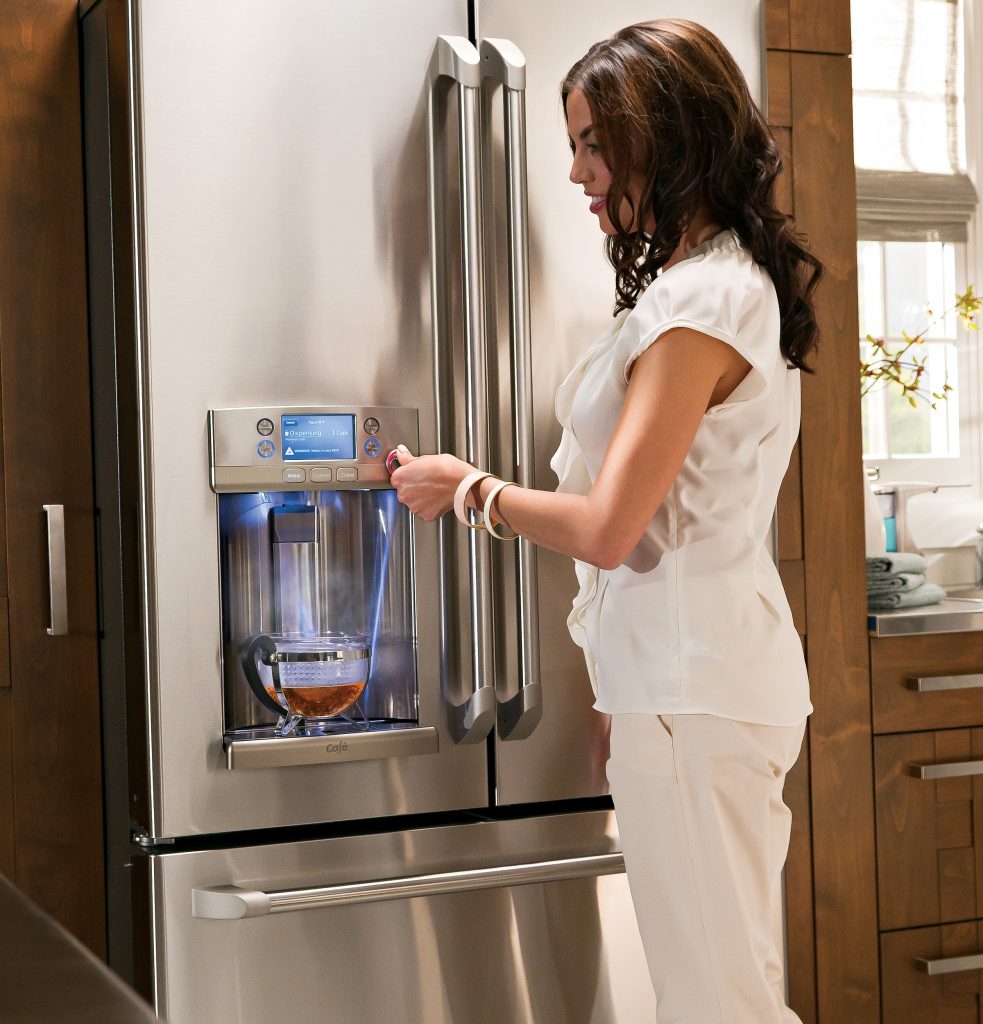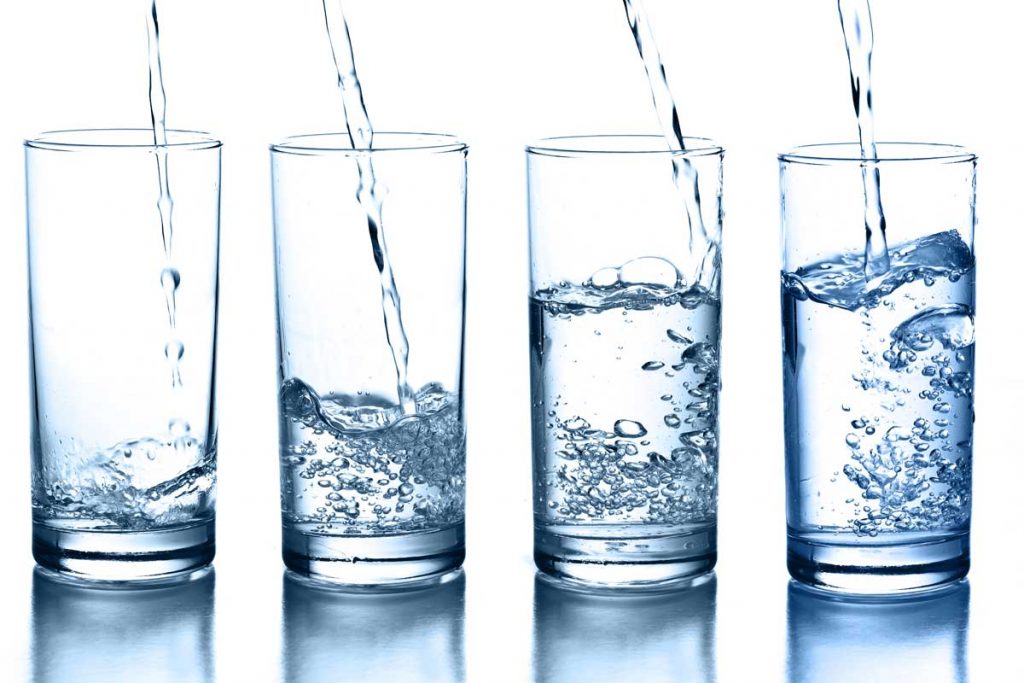The OEM vs. aftermarket debate is common among most appliances, such as refrigerator water filters. Do you know the difference between them? Each filter has its pros and cons and you’ll learn whether OEM or aftermarket is better for you. In general, one costs less, but the other performs better.
Both OEM and aftermarket refrigerator water filters have their strengths and benefits. You’ll often find that OEM filters have consistent quality while aftermarket filters are more affordable.
What are OEM Water Filters?
You might be curious what OEM means. It stands for Original Equipment Manufacturer. Sometimes this is the same brand as the fridge itself, but often it’s a separate manufacturing plant selling the parts directly to consumers.
These should be exactly or nearly identical to the water filter currently in your fridge. Since it’s the same manufacturing plant, you can expect high-quality materials to be used.

What are Aftermarket Water Filters?
If OEM means that it’s coming straight from the original manufacturer, then what are aftermarket refrigerator water filters? These are water filters made by another manufacturer.
They should be made to the same specifications as OEM filters, but this depends on the manufacturer as some will be of similar quality while others will use low-quality materials.
These are sometimes called generic water filters because they fit many different refrigerator models.

What are the Pros and Cons of OEM Water Filters?
OEM refrigerator water filters come directly from the manufacturer, so you can expect them to fit properly and to work as intended. You shouldn’t expect the filters to leak or fail prematurely. The water and ice should taste crisp and without any hint of contaminants.
Another huge advantage is that true OEM filters should come with a warranty. This is often a way to discern whether you’re getting true OEM or aftermarket filters masquerading as OEM.
However, they do cost more. They often cost about as much as buying a water filter directly from the fridge manufacturer themselves. It will save you some money, but not as much as aftermarket filters. They are also made to fit fewer models, while aftermarket filters fit many different fridges.

What are the Pros and Cons of Aftermarket Water Filters?
Aftermarket water filters are quite affordable and are often made to the same quality standards as OEM filters. If you don’t want to spend a lot of money, then aftermarket parts are often the way to go. If all goes well, then it should last as long as an OEM filter.
They also tend to fit many different fridge models, so it’s easier to find aftermarket parts of older fridges or for brands that have gone out of business.
However, there is no guarantee that the parts are made to the same quality. They might not fit properly, are more prone to failing prematurely, and might not work as well as OEM filters.
It’s hard to say because it all depends on the manufacturer. You could get lucky and the part could work as well as an official filter, or it might have some issues.

Which Refrigerator Filter Removes More Contaminants?
This all depends on the exact model, so consider this a general look at OEM vs. aftermarket refrigerator water filters. Refer to the models you’re considering for more specific information.
First of all, let’s determine what we mean by removing more contaminants. In this case we’re talking about which filter removes more overall materials from water.

OEM water filters typically remove chlorine, lead, asbestos, natural odors, and some other common contaminants. This leaves you with clean, odorless water that is safe and tasty to drink.
Aftermarket water filters usually only remove chlorine and natural odors. Aftermarket filters might remove other contaminants like metals, but not usually.
Do OEM or Aftermarket Refrigerator Water Filters Have Certifications?
There is one certification you should look for when it comes to fridge water filters. The NSF Certification, or National Sanitation Foundation, shows that the product was certified for safety and for proper removal of contaminants.
This is basically saying that the filter performs optimally and that it removes contaminants that affect the taste and odor of water. It also certifies that dangerous contaminants are removed via the filter. The certifying body will visit the manufacturing plant at random times to check on manufacturing quality.
Nearly every OEM filter has an NSF certification. You will want to check the model to be sure, but this is quite common. Aftermarket filters are a different story. The majority of filters lack this certification. It might still work perfectly fine, but there is no certification to back up the efficiency of the filter.

Does an Aftermarket Water Filter Remove Impurities?
The above section might leave you with an impression that aftermarket refrigerator water filters don’t remove impurities and contaminants. That isn’t true. Aftermarket filters do indeed filter the water.
They might lack a certification and they may not be as effective as OEM filters, but they do indeed filter the water and make it safer and tastier to drink.
It’s much more effective than using no filter or even using an old filter far longer than you should have. If you don’t have much money and your current filter has expired, then an aftermarket filter would be better than nothing at all.

What is Gallon Capacity with Refrigerator Water Filters?
You will likely notice that most refrigerator water filters mention gallon capacity. You might think this refers to how much water the filter can hold, but it’s actually a measurement of how much water the filter can properly clean.
So if the gallon capacity is 300 gallons, then it can clean that much water. While you can certainly keep using the filter after this, it won’t effectively clean the water.
Now that you know what gallon capacity means, you’re probably wondering which type of filter works better in this regard. Speaking generally about OEM vs. aftermarket refrigerator water filters, OEM models will typically have a much higher gallon capacity.
It’s sometimes as much as two or three times higher than aftermarket parts. However, be sure to check as some aftermarket water filters might rival OEM ones.

What is PSI with Refrigerator Water Filters?
PSI stands for Pounds per Square Inch. It’s a measurement of force and refers to how much force is being applied per square inch. When applied to water, a higher PSI leads to a strong stream while a lower PSI creates a weaker stream.
Unlike the gallon capacity measurement where more is better, you want to instead ensure that the PSI measurement matches your fridge. While the fridge should have some wiggle room, a filter that is too strong might cause water to spray while a filter that is too weak might cause the water to trickle slowly.
Unlike many other factors where OEM filters are clearly the better of the two, both OEM and aftermarket are usually calibrated for the fridge you’re using. OEM filters should be the exact PSI needed for your specific fridge.
Aftermarket filters are usually close, so you might notice the water going faster or slower than you’re used to, but it’s often very close to the ideal PSI for your fridge.

What is Water Temperature with Water Filters?
You’ll notice that many refrigerator water filters specify a water temperature. This is saying that the water filter will work optimally within that temperature range.
If the water is too hot or cold, then it can cause damage to the filter. That being said, nearly all filters, OEM and aftermarket, are made to work with most common temperatures.
There’s very rarely a significant difference in this regard to aftermarket vs. OEM refrigerator water filters. In most cases either filter will work fine. You should only check this if your fridge happens to run especially hot or cold, but that’s quite rare.

Which Filter is Better for Uncommon or Discontinued Fridges?
This is where aftermarket water filters shine. OEM products are typically meant for a select range of fridge models because the filters are made to perfectly replicate what the fridge brand is selling.
That means you can expect high performance levels, but it also means that the filters aren’t generic. You can find lots of OEM filters for popular fridge brands, but it gets harder with uncommon or discontinued brands.
Aftermarket filters are made to fit many different fridges with their generic sizing. This makes it much easier to find something that will work for these fridge brands. Not only that, but OEM filters like this tend to be significantly more expensive, so you’ll save some money as well by choosing an aftermarket filter.

Conclusion
Which is better when it comes to OEM vs. aftermarket refrigerator water filters? Both are good and have their pros and cons. OEM is usually the better of the two, typically comes with a warranty, and is certified to remove metals and other contaminants.
Aftermarket filters are more affordable, close to the same quality, and fit a range of different fridges with ease. Simply consider whether you prefer quality or affordability and you’ll know which is right for you.

